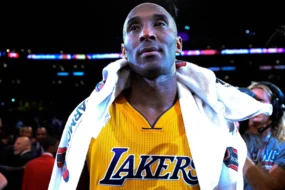Aaron Lewis on Bruce Springsteen
In August 2025, Lewis criticized Bruce Springsteen in unusually blunt terms. During a conversation reported by Blabbermouth, Lewis said, “I think he is a disgusting display of not appreciating what was handed to him.” He accused Springsteen of not respecting the opportunities and privileges he had as an artist in America. For Lewis, Springsteen represents a disconnect between iconic musicians and the values of the country that made their careers possible.
His words divided listeners. Supporters applauded his candor, echoing frustrations with artists they feel have grown out of touch. Critics argued that the attack was unnecessary and disrespectful to Springsteen’s legacy as “The Boss,” an artist widely celebrated for decades of music rooted in working class themes. The moment once again highlighted Lewis’s willingness to be provocative, even when it risks alienating parts of his audience.
Country Music and the “Popification” Debate
Lewis has also been outspoken about what he sees as the decline of authenticity in country music. In a conversation cited by Newsbreak, he argued that modern country has become overly commercial and overly polished. He went so far as to say that “the industry was infiltrated by California,” suggesting that Nashville has lost its traditional roots by catering to trends shaped by outside cultural forces.
For Lewis, country music should reflect raw storytelling, grounded values, and a connection to everyday struggles. He views the current mainstream sound heavily influenced by pop hooks and crossover production as a betrayal of that heritage. His own solo albums attempt to revive what he considers to be traditional country, blending acoustic instrumentation with direct and often politically tinged lyrics.
On Tucker Carlson: Politics and Personal Convictions
Lewis’s criticisms of pop culture and music are tied to his broader political worldview. In a transcript of his interview with Tucker Carlson, Lewis opened up about his views on America, freedom, and personal responsibility. He framed his music as an extension of his values, describing himself as someone who feels compelled to push back against what he sees as cultural decline.
In the interview, he discussed his support for conservative causes and his belief that musicians should not shy away from addressing political and social issues. He positioned himself as a voice for listeners who feel underrepresented in mainstream entertainment. By aligning himself with figures like Carlson, Lewis reinforced his identity as both a cultural commentator and a musician willing to embrace controversy.
Fan Reactions and the Divided Audience
The response to Lewis’s remarks and artistic direction has been mixed, reflecting the broader divisions in American culture. Fans who admire his bluntness see him as a truth teller unafraid of cancel culture or industry backlash. They applaud his willingness to criticize high profile figures like Springsteen and to resist the commercial sheen of modern country. Others view his comments as unnecessarily divisive, suggesting that his focus on politics may overshadow his musical contributions.
On social media, conversations often turn heated. Some fans echo his frustration with the direction of country music, while others argue that genres naturally evolve and that rejecting crossover influence risks alienating younger audiences. The tension mirrors debates happening in other parts of American life, where questions of authenticity, tradition, and cultural identity dominate discourse.
Music as Message
Despite the controversies, Lewis continues to record and tour. His solo work, including albums like State I’m In, features songs that merge personal reflection with broader cultural commentary. He presents himself as both a storyteller and a cultural critic, using music as a platform for his worldview. For some listeners, this blend of art and activism is refreshing. For others, it is a distraction from what they want in country music: escapism and universal themes.
What cannot be denied is that Lewis has carved out a unique place for himself in both rock and country. Few artists transition from fronting a successful hard rock band like Staind to pursuing a career in country, let alone while openly courting controversy. His trajectory underscores his refusal to be confined by expectations, even when that choice comes at the cost of mainstream acceptance.
Why Aaron Lewis Matters
Whether one agrees with his positions or not, Lewis matters because he challenges the status quo. He raises questions about what country music should sound like, about the role of artists in shaping cultural conversation, and about how legacy musicians like Springsteen are remembered. His bluntness can be abrasive, but it ensures that discussions around authenticity, artistry, and American values remain part of the conversation.
At a time when the music industry often prizes safe and marketable content, Lewis stands as a reminder that controversy and creativity have always been intertwined. His career is proof that music is not only entertainment but also expression—and that expression often sparks disagreement.
Conclusion
Aaron Lewis is more than the sum of his controversies. He is a musician whose journey from Staind to country has been marked by conviction, risk, and a determination to speak his mind. His criticisms of Bruce Springsteen, his disdain for pop driven country, and his political discussions on platforms like Tucker Carlson all reflect a man unwilling to remain silent. For some, he is a refreshing voice of authenticity. For others, he is a polarizing figure out of step with the times. Either way, his influence ensures that conversations about music, culture, and values will continue as long as he has a microphone in hand.






